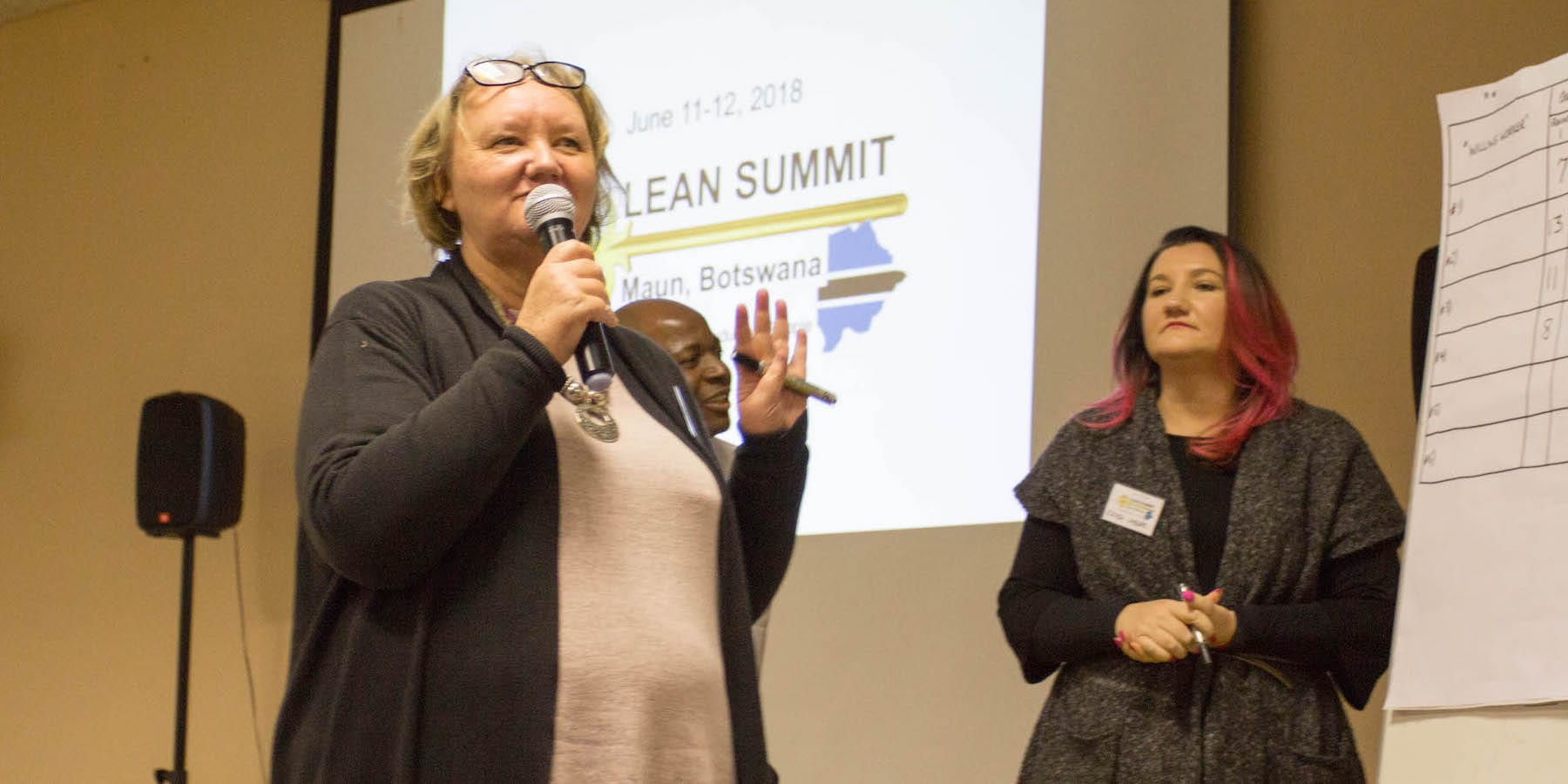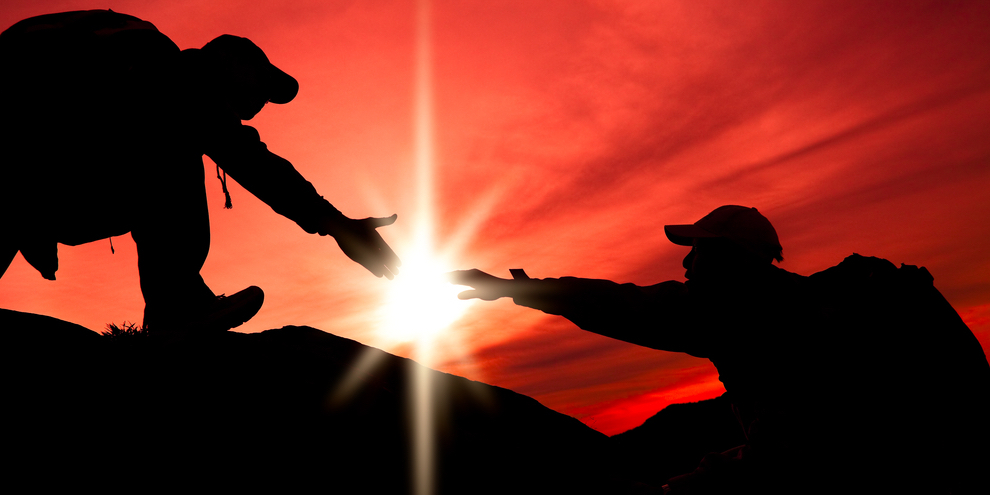
Keeping focus in a war zone
FEATURE – The author discusses the impact of the Covid-19 pandemic on the companies and the needs of individuals in her town of Maun, Botswana, and wonders what role lean can play in their lives.
Words: Sharon Visser, President, Lean Academy Botswana
As the world is in turmoil, I think of the floodwater that gently flows down the mighty Okavango river creeping into the flood plains, bringing life-giving waters.
The drought has broken, and much-needed rain has fallen gently onto the parched earth. The grass is now long and green.
I ponder the contented cattle asleep under the trees early in the day, forgetting their year of hardship, in their wisdom living only for the moment.
I appreciate that I no longer hear the noise of light aircraft flying over the house. This stillness takes my memory back to balmy days in the distant past when there was just the sound of the fish eagle calling and the gentle splash of an animal moving through the water.
I then listen in my imagination to the gentle plop of a fishing lure hitting the surface of the river and the whirring of the reel.
Peace, such peace
This excerpt is from the journal I kept during the three-months Covid-19 lockdown here in Botswana. When I wrote these words, I felt like responsibility had been taken from me. After all, I had no saying in the matter (which meant I also felt no sense of guilt over time wasted engaging in my hobbies).
I knew in my heart that the lockdown would have a profound impact on Botswana and, indeed, the world. I recognized that habits would be broken for a while, that value streams would be forgotten, that savings would be depleted, and that the time lost could never be found again.
In Botswana, we had three months of lockdown. During this time, I communicated regularly with the organizations I am supporting. Two of them were considered “essential services” and had to stay open, while two others went into shutdown.
The two essential-service companies had different battles to fight, but they both called upon their lean coaching and newfound skills to tackle the crisis.
One of these businesses, although essential, was forced to put their full regional support team on lockdown. They utilized this time to focus on the lean processes that had benefited the company and documented the standard work. They also revamped their Covid/safety processes in innovative and frugal ways that made me very proud.
Another organization, a supplier of fresh products to the tourist industry, was and still is impacted by the closure of the tourist camps in the Delta and the grounding of flights, now entering their 9th month (our borders are shut throughout the State of Emergency, which is due to last until March 2021). They used the time to work on eliminating waste to the extent of building a shop inside their factory to save on movement, rent, utilities, and transport. While doing all this, they improved their value offering to diversify their customer base.
One company felt my presence was surplus to requirements, finding a cost-saving opportunity by following the traditional approach of letting staff go as quickly as possible to preserve funds for the shareholders.
Another called on me to be there the moment they re-opened after lockdown to re-establish routines and help create a new way forward.
I assisted the essential services companies during and after lockdown where I could. I admired their resilience and courage as much as I did the medics in the hospitals and the people in Europe singing from the balconies.
When I was eventually allowed back to the workspace to observe, I noticed some behaviors that challenged my preconceived ideas of how I expected people to respond.
I found that:
- Some resented working when others were not able to work. (I thought they would be happy to have a secure job.)
- Some resented coming back to work. (Again, I thought they would be happy to have a secure job.)
- Some came back and felt that the work was too hard and the hours too long. (I thought that they would be happy to work and have a secure position.)
- Some came back, unable to remember how to do the work. (This was something I did expect as they were out of practice and lost their beat.)
- Some came back very afraid of getting Covid-19. (Also something I expected.)
- Some came back frustrated with the pandemic and our collective response to it. (This I expected as I had and still have the same feelings myself.)
- Some did not come back at all. (Some were too afraid to go back to work, but sadly we have also had a very high rate of domestic violence and suicides during and after the lockdown.)
- Some just came back angry, not understanding why.
- Most came back with fractured thought processes. (Something I expected as habits have been changed, and there seemed to be gaps in their thinking as everyone adapted to the very predictable new current situation).
I wondered at the responses and realized that Maslow's Hierarchy of Needs has been impacted in every area. Here in Botswana, like in the rest of the world, we might not have infrastructure damage, but we may well have planted a bomb under the Maslow Pyramid.

Physiological needs have been greatly impacted, perhaps more in countries without robust social systems. The bottom of the pyramid has been blown away, creating homelessness and shortages in food and water.
Our sense of security has been destroyed by the fear of Covid, the fear of going to the hospital for those with underlying conditions, fear of being put in a Covid hospital and be unable to have our loved ones near us. In Africa, we fear going into a government hospital and not being cared for at all, a worry that has been fueled by social media with a number of horror stories of people dying alone and others not receiving care, food or water for 48 hours.
Love and belonging. Yes, we do receive this in the workplace. Upon return to the workplace, people are masked, so we struggle to communicate. We cannot see them smile. We cannot have any physical contact. We can no longer comfort each other when something terrible happens. Africans are quick to touch and embrace – Western business rules have not yet impacted us significantly in this area – and it’s clear to see how Covid has broken connections with the layoffs, transfers and, in our case, the unpaid leave it forced us into.
Esteem has been damaged as good people are let go or struggle to carry out the work they used to do out of habit because it has changed so much. Breadwinners are no longer breadwinners.
Self-actualization has been impacted by ambitions and dreams being destroyed overnight or are dying a slow death as the virus continues to ravage the world.
It's a war zone, people. We have walking wounded with no outward blood stains or indicators of the turmoil.
So, what can we do as lean practitioners?
We can go back to what we know: observing the people doing the work and choose the best tools we can to get them through this time. We can tread softly in our world to make sure that we are not impacting the emotional safety of the people we are trying to help by feeding “their fear of redundancy”.
We can do this by asking ourselves how Maslow's hierarchy impacts the person we are working with today. Maybe asking them how they are doing, how they are coping, how Covid-19 has impacted them.
Brace yourselves. One of my employees had his house blown up by a gas bottle and his brother committing suicide all within 14 days. So, once again, tread softly.
We can simplify every process, encourage clear work instructions, and remove waste in the “right” places.
We can help people bring flow to the work and create clear and straightforward targets and visuals.
We can revisit the top of the house and help management stabilize the company using A3s.
Everything we do now will be situational, and often unpredictable. Still, to our people we can be the “lean” rock in turbulent waters. It will be difficult, and it will often feel exhausting. When it does, find your quiet place and conjure up the vision that brings you peace, just like the one I found for myself.
This stillness takes my memory back to balmy days in the distant past when there was just the sound of the fish eagle calling and the gentle splash of an animal moving through the water.
I then listen in my imagination to the gentle plop of a fishing lure hitting the surface of the river and the whirring of the reel.
Peace, such peace
After this, you will be ready to allow the waves to crash against you and take up your lean weapons and armor to go fight the good fight.
THE AUTHOR

Read more


FEATURE - What is the relationship between lean thinking and cost-cutting? Here's why you should focus on improvements as opposed to slashing a budget.


FEATURE - Britain’s National Audit Office looks at how well taxpayer money is spent, gaining invaluable insight into the use of lean management in central government.


FEATURE – This article offers an exhaustive explanation of how to prepare a Concept Paper and why this is a tool that will help us to succeed in the execution of large change projects.


FEATURE – Why do lean transformations benefit from the support of a sensei? Michael Ballé discusses how we typically need help to take the emotions out of the work and go down uncomfortable paths.

